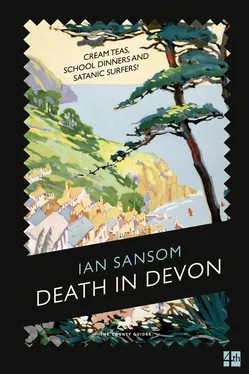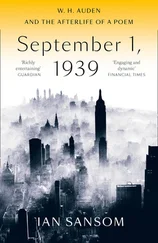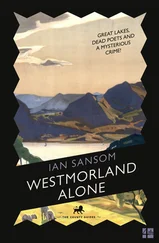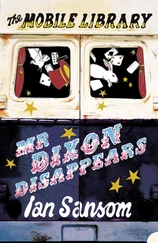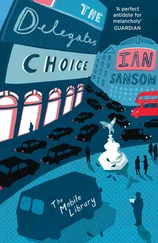On my right sat the school nurse, the woman who had greeted us on our arrival, a Miss Horniman. She was a young, round neurotic thing who wore Harold Lloyd glasses and picked at her food absent-mindedly like a schoolgirl and who kept telling me how terribly lucky she was to have a job at the school, and how brilliant and creative were all the staff, particularly Alexander, of course, with whom she occasionally exchanged glances across the table – just as I exchanged glances with Miriam – and with whom she was clearly in love. Her paean to All Souls, to its staff and pupils, and to the extraordinary Alexander in particular soon became rather tiring.
‘He takes photographs you know,’ she said. ‘He’s terribly modern and up-to-date. He’s taken photographs of all of us here in the school.’ I momentarily entertained an image of her lounging on a divan, her innocence protected with a carefully draped Chinese shawl, or perhaps a strategically placed puppy, her eyes glowing like ruby sparks behind the Harold Lloyd glasses, and Alex hovering over her greedily with his lens …
‘Really?’ I said. ‘I also take photographs—’
‘And he paints,’ she said. ‘He’s influenced by the surrealists, you know.’
‘Yes. He certainly looks like a man who might be influenced by the surrealists.’
‘And he makes sculptures – clay models. Bronzes.’
‘Is there no end to his talents?’ I asked. This was not, I must confess, intended as an entirely serious question, but Miss Horniman took it entirely as such.
‘Really, I don’t think there is,’ she said, ‘he is so extraordinary.’ She then duly launched into a list of his various other accomplishments, including his athletic prowess, his culinary skills – he was reputed both to be able to boil spaghetti – ‘Italian spaghetti!’ she exclaimed – and to make a fine mayonnaise – and his amazing ability on the recorder. ‘And he plays the organ!’ she concluded. ‘He writes his own tunes!’
‘He is like J.S. Bach himself,’ I said.
‘Yes,’ she agreed.
‘Crossed with Pablo Picasso and Auguste Escoffier.’
‘Exactly like J.S. Bach crossed with Picasso,’ she said. ‘And Escoffier! Exactly!’
All the time, opposite us, Alex and Miriam continued deep in conversation, Miriam occasionally looking across the table in my direction, with what could only be described as a mischievous glance.
Tearing through a slice of perfectly pink lamb, I turned back to my German friend, Woland, who proceeded to discourse enthusiastically upon his love of the English countryside, explaining that he had hiked the length and breadth of Devon with nothing but his trusty knapsack on his back and the goodwill of the local people to guide him. Unaware of the torrent of tiresome trouble I was about to unleash, I then foolishly revealed that we were here not just for Founder’s Day but were intending to explore Devon for the second volume of The County Guides series, and I asked, innocently, if perhaps he could recommend anywhere that we should visit? This was a terrible, terrible mistake.
In later years I learned not to mention our purpose to others, in case what happened then happened again – though of course it often happened anyway. Everywhere we visited during our time together working on the books we found people excessively proud of their counties, as though of some prize cow, or a local cheese, and intent upon offering recommendations of where to visit in order best to enjoy the local delights. It was like listening to parents extolling the virtues of their children – which is to say, deeply tiresome.
‘Ah!’ said Woland, flexing his fingers in preparation for what was clearly going to be a serious bout of totting up. ‘Recommendations of where to visit?’
‘Yes, that would be very helpful, if you have any.’
‘Beer,’ he said definitively.
I thought I’d misheard him.
‘Beer?’ I said. ‘No thank you, I’m fine.’ We were by this stage in the meal drinking a red wine so sweet that it might almost have been used for communion.
‘ Nein ! Nein ! Nein ! Beer . Beer?’
‘Beer?’
‘A fishing village, not far from here, just a few miles. Surely you know Beer, Mr Sefton? I thought it was famous in England? The stone from Beer, it has been used in the Tower of London?’
‘Of course. The stone from Beer, yes, used in the—’
‘And it has a lovely sheltered bay.’
‘Good.’
‘And white cliffs – and a stream that runs down the main street, leading to the beach.’
‘Sounds absolutely lovely.’
‘And of course the caves.’
‘The caves?’
‘Yes, the quarry caves. Would you prefer for me to write this down?’
‘No, it’s fine. I can remember, thank you.’
‘Good. So. When they have quarried the limestone it has left these … what would you say? Caves?’
‘Caverns?’
‘Yes, caverns. Used for smugglers. Wonderful. The stone of Beer was first quarried for the Romans, I think.’
‘Really?’ I rather wished I was drinking beer, rather than hearing about it.
‘Very big underground rooms, chambers. The rooms are the reverse image, you see, of the great halls and cathedrals quarried from them.’
‘Yes, that does sound very interesting,’ I said, feigning enthusiasm.
‘Where else?’ wondered my friend. ‘Where else would you like to visit?’
‘I’m not sure,’ I said. ‘I think we probably have an itinerary that will see us through …’
He called across the table to a thin man, Mr Jones, a Welshman, who had earlier made the quip about the ineducable, and who was now engaged in the business of dismembering half a chicken. Woland explained to him the purpose of our visit.
‘Beer, Jon. They are visiting Beer. But where else should they visit?’
‘The Royal Oak at Sidbury?’ said the hilarious Jon Jones, the Welshman, pausing momentarily in his chicken-parting. ‘And the Turks Head at Newton Poppleford?’
‘Not just pubs, Jon!’
‘Only joking,’ said Jon, obviously, his mouth now full. ‘What about the caves? They should probably visit the caves.’
‘Yes, I have already suggested the caves,’ agreed my German friend. Jon Jones the Welshman had by this time nudged the woman on his left, and explained our purpose to her, and she had dutifully nudged the person on her left, who had explained our purpose to them, and etcetera, until soon I had recommendations from almost everyone seated at the table. In south Devon alone we were encouraged to visit Branscombe (‘Thatched forge, terribly pretty, longest village in the country’), Budleigh Salterton (‘You simply must go to Budleigh!’), Colyton and Colyford. Exmouth. Seaton. Shute Barton Manor. Ilfracombe. The moors. Great houses. Battlements. Tudor gatehouses. The usual.
Fortunately, by the time we had reached dessert – of which there was an abundance, including huge fruit flans of cherry, raspberry and apple, with bowls of thick cream – I had managed to move the conversation forward. Unfortunately, the conversation we moved forward towards was education, a topic of course of great importance but frankly of strictly limited conversational interest, but upon which and about which my dear German friend, mid-flan, was very keen to offer his many insights.
‘You see, with teaching it is as it is with cooking, Mr Sefton.’ He clapped his hands together as he spoke, and then paused to ladle more cream into his bowl. ‘First’ – he clapped again – ‘you take your boy, yes?!’ He chuckled. ‘Some young barbarian with all the qualities of the natural savage – raw, if you like, yes? A hard apple, perhaps? Or a nut. A sour cherry. And then you chop him up, and you break him down, and you add your spices and your sugar and cream, and you combine him with all these other ingredients and – voilà !’ He held a spoonful of fruit flan aloft. ‘He becomes this delicious, delightful new thing. A young man!’
Читать дальше
